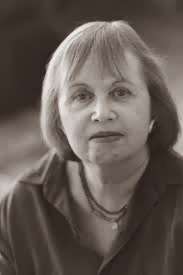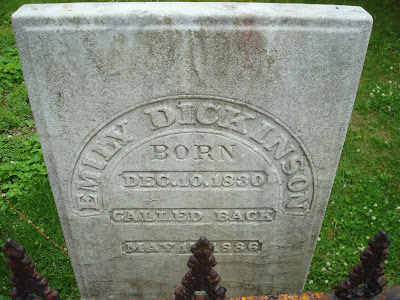 |
| My bookshelves when I lived in South Yarmouth |
My favorite books are generally biography, autobiography, essays, or memoirs, but I start this list off with a novel. Aciman is one of those writers who seem to have no imagination for fiction, so this book could just as well be a memoir of his time at Harvard University ... embellished perhaps, changed around perhaps ... but if presented as a memoir its truth would not likely be questioned. It's a great depiction of Khalid, a Tunisian cab driver whom the student-narrator meets in a cafe; Khalid's street-smarts and ability to seductively navigate Cambridge and Boston amaze the narrator, who seems to have no brilliant ideas such as Khalid can come up with in the blink of an eye; Khalid, who can figure a situation out quick as a flash, is as stunned by the narrator's naivete as the narrator is amazed by Khalid's cool. Harvard Square is a beautifully told story of a very unlikely friendship. The denouement, which involves a Green Card as the Holy Grail, is not happy,
Aciman is a beautiful stylist. His Eight White Nights of 2010 was also a great read. His 1995 Out of Egypt, a memoir, was a favorite. His 2007 Call Me by Your Name appeared, also flawlessly styled, and rather short, but also as a shock, for it seemed to have been written by a gay man; I would not have taken Aciman to be gay, but who knows? Call Me by Your Name has one of the most stunningly erotic scenes I've ever read in any novel ... easy enough, I suppose, for a straight man to achieve when you are as talented as Aciman.
I went to New York City in 2010 to attend a "discussion" with Aciman at the library on 42nd Street. He said from the stage that he wrote Call Me by Your Name during a summer break in Italy, a break from what was proving to be the arduous task of completing what turned into the 360 dense pages of Eight White Nights. He published Call Me by Your Name first in Italian ... "I immediately had something like four thousand friend requests on Facebook from gay Italian men!" he said.
(An aside: Aciman is also a devotee of Marcel Proust, and as he has read In Search of Lost Time in at least four languages I wondered what he thought of a statement made to me by a docent at the Proust Museum in Illiers-Combray ... i.e. that Proust's novel is more beautiful in English than in his native French. I so wanted him to smack down that smug Dutch docent's comment, but Aciman responded diplomatically, "I would say he is beautiful in every language!")
 |
| Andre Aciman |
2. All Roads Lead to France - Matthew Hollis
Robert Frost was having little success in getting his poems published in this country so, in 1912, he moved his family to England. He fell in with a good crowd, happening upon a little bookshop where poets liked to meet. His first two volumes of poetry were soon published in England. One of the poets he met and loved -- surely above all the others -- was a man named Edward Thomas. This book is the story of their friendship, their struggles, and the success Thomas found as a poet after being inspired by Frost on the long walks they took in the English countryside. It documents their vastly different destinies: Frost, triumphant, returned to the United States; he would subsequently receive four Pulitzer prizes. One of the first poems he'd written after his return from England was "The Road Not Taken" -- he mailed a copy to his good friend; many believe it inspired Thomas to volunteer as a lieutenant in the British army; dispatched to France he was killed shortly after his arrival.
The biographer, Hollis, is also a poet, as well as an editor at Faber & Faber. I loved reading this story of Frost and Thomas and their families and friends.
 |
| Matthew Hollis |
3. Joseph Anton - A Memoir - Salman Rushdie
This memoir of the years of Rushdie's living in hiding after a the fatwa was decreed was totally absorbing and fascinating. He's a great writer, and was forced to live a totally twisted-every-which-way life, and it had plenty of agony and intrigue, but makes a great story. Not a boring sentence, not a cliche, and hundreds and hundreds of well-turned phrases. I want the next Nobel prize to go to him. I wanted the last one to go to him. I wanted the one before that one to go to him. Wanting turns out not to do me a hell of a lot of good.
 |
| Salman Rushdie |
4. Every Love Story is a Ghost Story - D.T. Max
This is a biography of David Foster Wallace, an oddly intelligent man who, by his late twenties, had achieved amazing literary success, and his fame and fortune grew and grew; he was brilliant, original, and funny. I never read him but was curious about his life. He spent almost all his life on drugs in efforts to treat his mania and depression. An attempt in his forties to wean himself off drugs had disastrous effects: he hung himself in his garage on September 12, 2008, at the age of 46. D.T. Max has written an admiring and detailed story of a man who seemed to be loved by all who knew him.
 |
| D.T. Max |
5. The Voice is All: The Lonely Victory of Jack Kerouac - Joyce Johnson
I saw this book on the "new" shelf at the Orleans Library. Johnson in 1983 won a National Book Award for a memoir, Minor Characters, which was about an affair she had with Kerouac. Although I was certain that I'd read all I needed to read about Jack Kerouac, and I supposed this was a re-hashing of her life and times with Kerouac and the other beats ... just another cashing in. But I opened pages here and there in The Voice is All and didn't want to stop reading. Turns out it's a marvelously researched study of the influences, particularly his Franco-American background, on Kerouac's writing; Johnson obviously pored over every paper in the Kerouac section of the Berg Collection at the New York Public Library. It is not a cashing-in; it is serious scholarship. I enjoyed it immensely.
 |
| Joyce Johnson |
6. The Dinner - Herman Koch
Koch, a Nederlander, is a fine writer, and tells here a riveting story. I would rarely read a book based on a full-page ad I saw, but that is what I did in this case ... the blurbs sucked me right in, and it was a good place to have been sucked into. Great characters, great descriptions, and a great unsettling story; I hurried along because I could barely wait for the denouement.
 |
| Herman Koch |
7. The Selected Letters of Willa Cather - edited by Andrew Jewell and Janis Stout
I think you'd have to call yourself nosy if you were held rapt for something like two weeks of your reading time by over seven hundred pages of letters written by someone who, aside from great literary achievement, was really not especially interesting. She traveled, but usually only to places where one or another of her companions wanted to go; she was sociable but rarely wrote about her friends. She was never intimate with her correspondents. I most definitely had no prurient interest in her lesbianism, but was amazed, despite the times she lived in, at how closeted she kept herself even in letters to close friends.
I wonder now what kept me holding that heavy book for all the time I did ... but I did, and I was never bored. Just nosiness I guess.
I visited Cather's grave in New Hampshire years ago. The small flat stone just to the right of Cather's marks the grave of her longtime companion, Edith Lewis. Since Lewis outlived Cather (by 25 years) I like to think that it was she who arranged such a beautiful gravesite for her lover; and then pre-arranged the modest marker for herself, putting herself near to Willa in death as she had been in life.
 |
| Old Burying Ground; Jaffrey, New Hampshire |
8. Waiting for the Barbarians: Essays from the Classics to Pop Culture- Daniel Mendelsohn
After reading and liking several Mendelsohn essays in The New Yorker, I've generally kept up with the books he publishes. I guess you could say I stalk him. With his enviable grounding in Greek and Roman culture, though, he's often way above my head. I really liked one of his earlier books, The Elusive Embrace: Desire and the Riddle of Identity. And in this latest collection he has, amongst subject matter far and wide, an essay on what I think is one of the greatest novels I've read by anyone living in my own times, The Kindly Ones, a nearly thousand page story about the Eastern Front of World War II, published in 2009, written by Jonathan Littell. Mendelsohn goes to great lengths to connect the structure of the novel to ... I forget ... something Greek or Roman ... and it went right over my head, but I loved him for giving so much attention to a great book.
A British journalist, Christopher Bray, says of Mendelsohn, "He writes better movie criticism than most movie critics, better theatre criticism than most theatre critics, and better literary criticism than just about anyone." That's a bit hyperbolic ... I don't read much movie criticism or much theater criticism (just Hilton Als), but for literature I read Joan Acocella, Judith Thurman, and Louis Menard, to name a few ... Mendelsohn may be their equal, but he is not their better. (No one may be better than Joan Acocella's version of better ... she lays it all out and wraps it up in a pretty ball and you come to the last word in one of her essays and think how the hell did she compose that?)
 |
| Daniel Mendelsohn |
9. Country Girl - Edna O'Brien
I've loved Edna O'Brien since back in the sixties when The New Yorker would have 2, 3, even 4 short stories in each issue, and sometimes one of them would be by this great Irish writer who was practically ran out of Ireland when her first novel, Country Girls, was published in 1960. "The book was banned, burned, and denounced from the pulpit," one commentator said. So now, in her mid-eighties now, here she is with her memoir. I loved every word, even when she was name-dropping.
 |
| Edna O'Brien |
10. (a) Looking for the Gulf Motel
(b) Directions to the Beach of the Dead
(c) City of a Hundred Fires - Volumes of poetry by Richard Blanco
I've saved the best for the last. I was at the Inauguration and heard him read. He came to a nearby town and I went to see him. His poems are his autobiography. They are heart-warming and sometimes really funny. "I was made in Cuba, assembled in Spain and imported to the United States," he has said ... conceived in Cuba, born in Madrid, and then brought to Miami. He is funny. He is so sweet! He is so handsome! He read and talked for about an hour. Then I shook his hand! I said, "You're just great!" He said, "Thank you!" He smiled at me! I melted away into the night, wishing him every possible happiness.
 |
| Richard Blanco |








